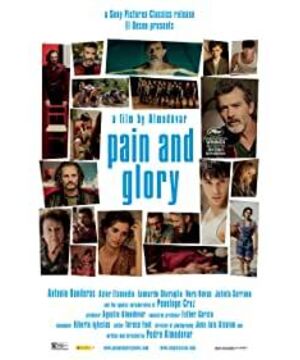It was two o'clock in the morning when I finished watching the movie.
I turned off my phone and computer, lit a cigarette, and sat quietly for another ten minutes. When I got back to bed, turned off the lights, and closed my eyes, I still couldn't fall asleep.
The picture of the movie, like a marquee, flashed over and over again in my mind.
Not because of how wonderful the story of the film itself is, nor because of the director's skills, but as an inspirational self who regards film as a lifelong career, he deeply identifies with Amoxiwa in the film, and he writes about his life. The movie turned his pain into fuel, did he get glory in the end? Judging by the status he has achieved in his career in the movie, it seems he has achieved it. But I always felt that there was no, this was never the glory he wanted. For him, it was still pain, never-ending torture on the body, and never-ending loneliness in the soul.
In his later years, after the death of his mother, Amoshiwa never stopped. He missed her, and at every moment when he closed his eyes, he sank into his childhood and memories of his mother. When washing, the tune he hummed, every note, he remembered clearly.
If you wear glory, but you can't share it with others, it is better to indulge in drug addiction and come easy.
What Amoxiwa needed was never just a blood connection, but a real spiritual intimacy.
So he chose the movie and chose to use the movie to leave the old man, he thought that he could save himself.
It wasn't himself who saved him, the movie saved him.
He never needed pills and drugs, his pain had to be relieved by movies.
When he gave up the movie and couldn't bear the pain, he could only use drugs to push himself into a desperate situation step by step. Even if he was suppressed by writing, he couldn't get rid of it at all, so he gave his story to Banderas. Even if he couldn't shoot it himself, he hoped to create it in this form, maybe it would make him feel better.
Banderas's performance did not live up to himself, with a red background, a lonely whiteboard, and a lonely chair, Banderas seemed to have become Amoxiwa himself at that moment. This scene also touched me.
Also touched was the Marcelo who sat under the stage and left in the story at the same time.
When the show was over, Marcelo came to Amoxiwa's house, a couple who hadn't seen each other for decades. They hugged and kissed. At first, he couldn't save Marcelo, but this time, Marcelo saved him. took him.
For the first time since his mother left, he wanted to quit his drug addiction and wanted to be saved, so he started surgery and started filming.
At the end of the film, the story of childhood ended in a dream, the camera slowly pulled away, and Amoxiwa looked at the familiar scene with tears in his eyes. Once again, he was saved by the film.
View more about Pain and Glory reviews











